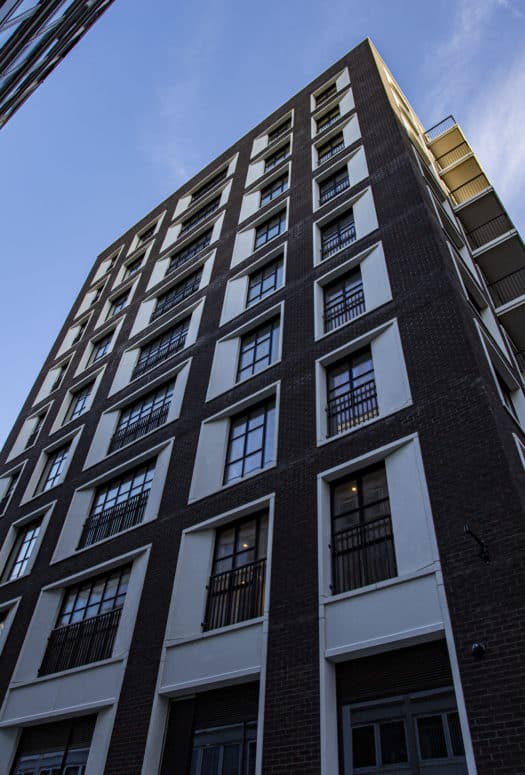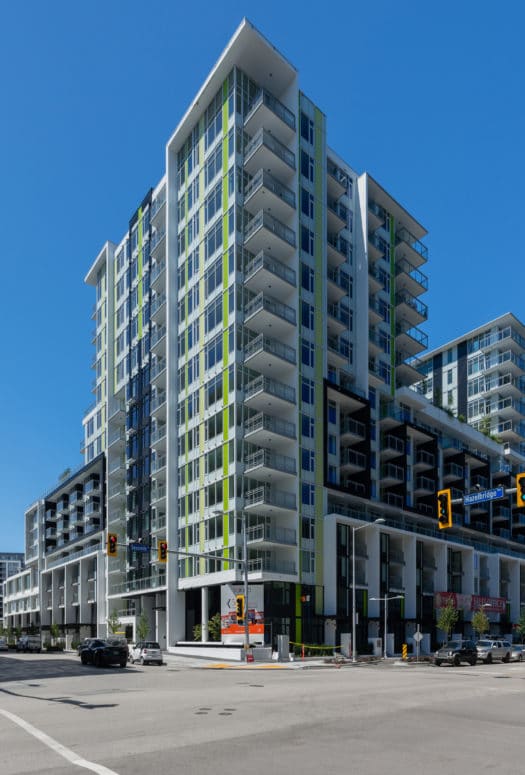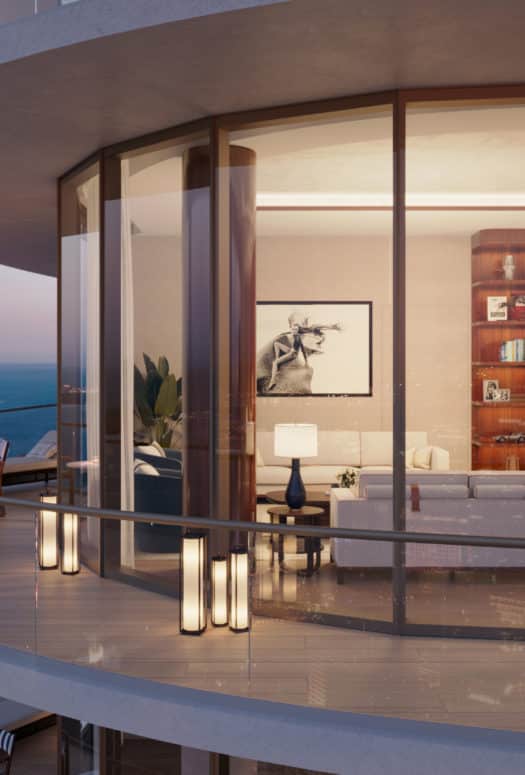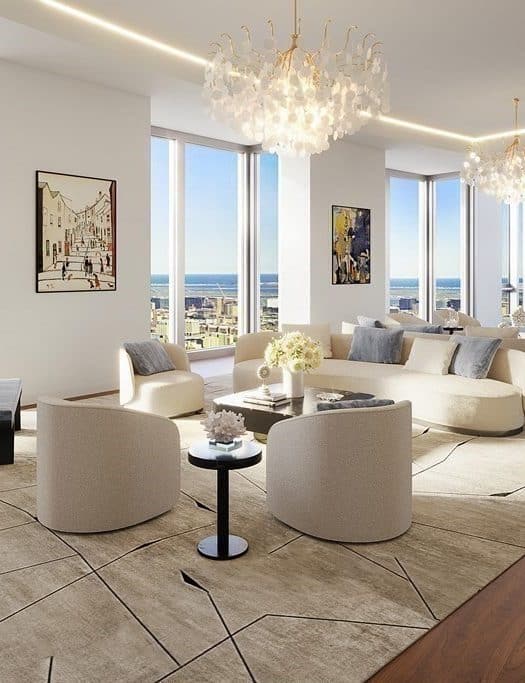Virtual Showings Cater to the Jetsetting Type
By: Emily Nonko
After COVID-19 forced New York City into lockdown, Sotheby’s agent Patricia Parker got to work. “I was literally, in some way, shape, or form, calling, Zooming, or texting my clients every week in 2020,” Parker says. She found it paid off when international clients still decided to buy property in New York, but needed her guidance to make the purchase sight unseen. “It’s a big position of trust and responsibility,” she said about the new role of the real estate agent during the pandemic.
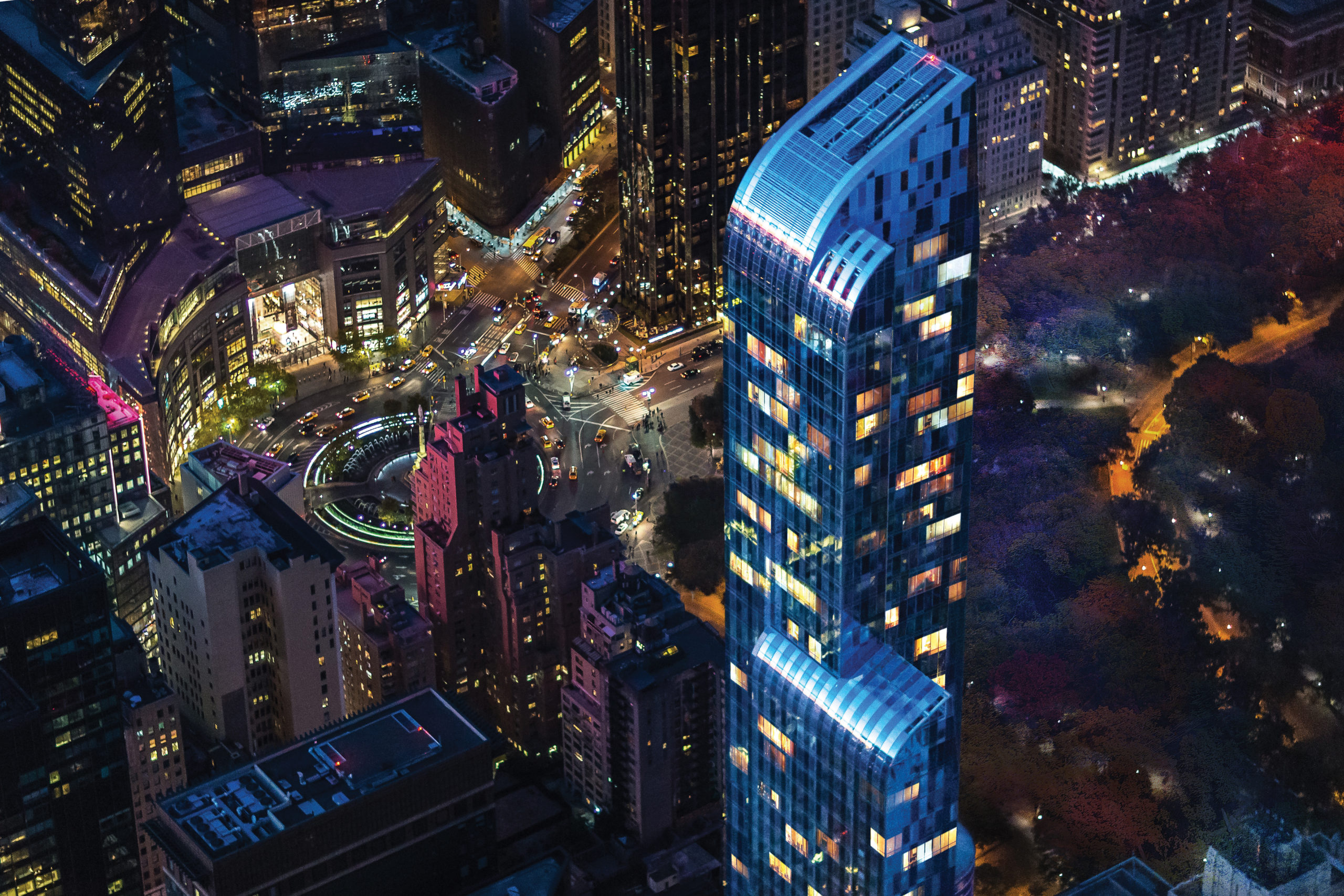 Photo Credit: Extell Development Company
Photo Credit: Extell Development Company
That role has continued. This year, Parker adjusted to the 12-hour time difference between New York and Tokyo to assist Kazuyo Matsui, who has worked in Japanese film and television for decades, with apartment hunting through texts, emails, calls, and FaceTimes. Matsui eventually bought a one-bedroom apartment at One57 for $2.9 million without stepping foot inside.
While that story might have raised eyebrows pre-COVID, it’s hardly a rarity now. The entire condominium buying process has gone digital, and it’s likely that some practices will remain long after the pandemic is over.
Agents across the country have embraced new digital tactics: Zoom client meetings, virtual walkthroughs posted on listings, and plenty of FaceTimes. Jeremy Kamm, an agent for Warburg Realty, recently conducted all-FaceTime showings for a client buying a duplex condominium in Boerum Hill, Brooklyn — for the full asking price. Aimee Becker, an agent with Sotheby’s International Realty – East Side Manhattan Brokerage, reported, “I just closed on a condominium at 250 East 54th Street from a FaceTime call.”
Julie Busby, an agent with Compass Chicago, counted 12 sales conducted during 2021 in which the buyer never saw the apartment in person. “Video showings have become at least 40% of our business,” she said. Andrew Ernemann, an agent with Aspen Sotheby’s International Realty, pointed to the owner who bought the penthouse of a luxury Downtown Aspen project sight unseen for $18.3 million within two weeks from when the property was reintroduced to the market.
Many sight-unseen buyers are wealthy jetsetters who can afford properties around the world. They have the means to begin in-person showings, Parker pointed out. “They do want to step foot inside that apartment, but there’s always going to be a Plan B,” she said, meaning the option of virtual showings and a virtual transaction. Busby added that she thinks agents will adopt a “hybrid model” moving forward, with a mix of Zoom meetings, FaceTimes, and in-person viewings.
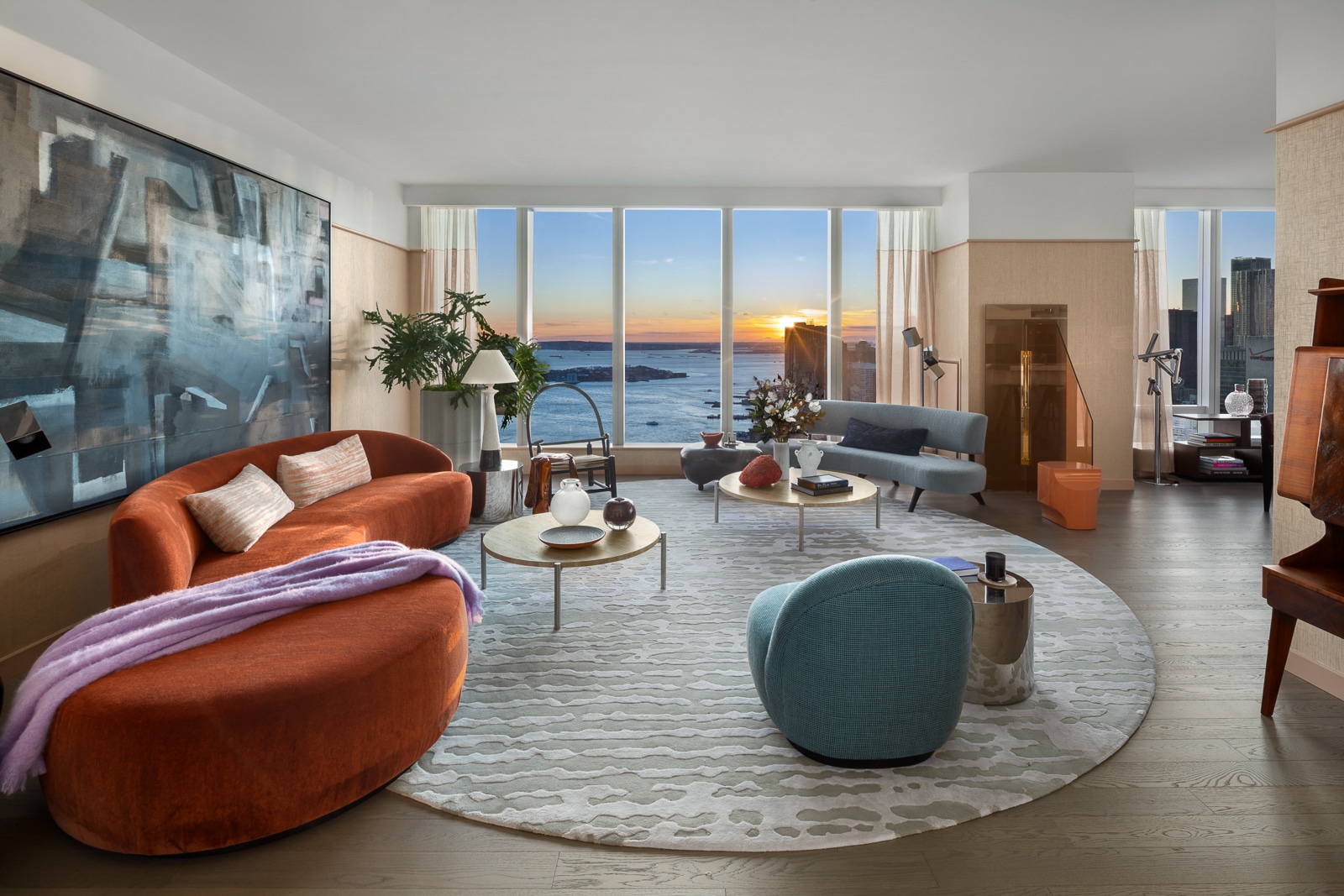 Photo Credit: Evan Joseph
Photo Credit: Evan Joseph
Then, there’s the rest of the buying process that’s likely changed for the long term. Closings in New York City went fully remote during the pandemic, and “we’re past the point when I thought in-person closings would resume,” said Shaun Pappas, a partner at Starr Associates LLP. The remote closing process, he added, has “become fairly efficient.”
At the Extell Development condominium projects Brooklyn Point and One Manhattan Square, the sales team shifted to virtual-only tours at the beginning of the pandemic, but most potential buyers have been returning in person. “At the end of the day, people really want to come and see the view, the finishes,” said Ari Goldstein, senior vice president of development at Extell. The company still offers the option of virtual tours, mostly taken up by people outside New York.
Extell added video walkthroughs of model apartments and amenity spaces to its listings, and after positive response will continue to do so. “Even for the people who come into the building, it’s helping them seal the deal,” Goldstein said.


